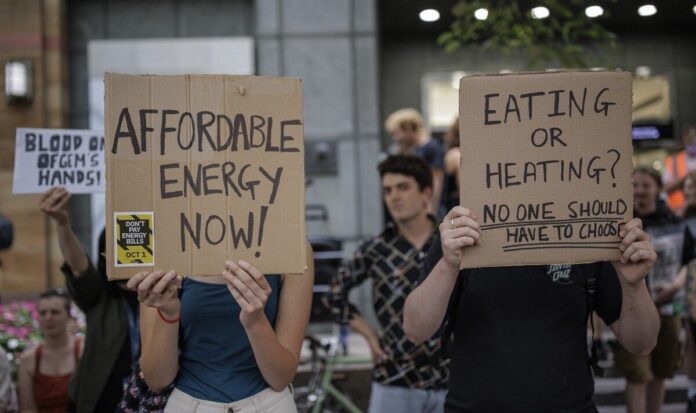Industry regulator Ofgem has been accused of being “too slow” to act on the energy crisis in a damning watchdog report. It called out the regulator after it failed to prevent energy firms from going bust, which has seen millions of households forced to foot an eye-watering £2.7billion bill. In the report, MPs on the Public Accounts Committee (PAC) said the industry regulator failed to govern the sector ‘at a considerable cost to billpayers’ after it failed to make requirements stricter for new suppliers until 2019, or for existing suppliers until 2021. This is reportedly despite issues with the financial resilience of energy retailers surfacing as early as 2018, while the prices of wholesale gas and electricity has skyrocketed.The report blames Ofgem for failing to prevent the 29 energy suppliers from collapsing since July 2021, in a move that has impacted up to four million customers across the UK. And this has had a staggering economic impact, it says – costing an estimated £2.7billion for consumers collectively.This amounts to around an extra £94 each, placed on household bills to recover the cost of managing customers’ transfers to a new supplier. Ofgem has been blamed for the extra £94 slapped onto millions of Britons’ energy bills (Image: Getty ) The watchdog recognised that Putin is responsible for the surging energy costs (Image: Getty )The watchdog also warned that this price is “very likely to increase”, blaming the extra charge on bills on “Ofgem’s failure to effectively regulate the energy supplier market”.It is recognised that Russian Vladimir Putin’s war in Ukraine sparked supply chain issues which sent prices soaring, in addition to his various supply cuts which made matters worse. But the committee believes the industry regulator should have done more to make sure companies were strong enough to cope with rising costs, a move it should have made before the crisis even began, the report authors argue.Dame Meg Hillier MP, chair of the committee, said: ‘It is true that global factors caused the unprecedented gas and electricity prices that have caused so many energy supplier failures over the last year, at such terrible cost to households. But the fact remains that we have regulators to set the framework to shore us up for the bad times.’Problems in the energy supply market were apparent in 2018, years before the unprecedented spike in prices that sparked the current crisis, and Ofgem was too slow to act.READ MORE: Octopus Energy’s takeover of Bulb delayed after High court ruling Mr Hunt has scaled back the energy price guarantee (Image: Getty )”Households will pay dear, with the cost of bailouts added to record and rising bills. The committee wants to see a plan, within six months, for how government and Ofgem will put customers’ interests at the heart of a reformed energy market, driving the transition to net zero.”The report also adds that Ofgem “did not strike the right balance between promoting competition in the energy suppliers market”. Meanwhile, Ofgem’s measure to protect households from the full extent of the rising costs was also criticised, with the report arguing that the price cap was “providing only very limited protection to households from increases in the wholesale price of energy”, warning prices will “get significantly worse through 2023”.Ofgem said: ‘The sheer scale and pace of this once-in-a-generation global energy price shock meant supplier failures were seen all over the world. However, the supplier of last resort scheme acted as a vital safety net for British consumers, ensuring they continued to receive energy when their supplier failed and kept their credit balances. This safety net inevitably incurred costs.’Looking ahead to this winter, prices remain volatile, however the market is now in a much more resilient position, partly due to robust steps we’ve taken to reduce the risk of future supplier failures and to raise the bar on entry for new suppliers. And our proactive compliance reviews have dug deep into the practices of all energy suppliers, enabling us to demand improvements where they have been found lacking.’DON’T MISS Putin poised to spark energy horror in UK as Russia plots sabotage [REVEAL]Octopus Energy shares boiler hack saving customers £112 a year [INSIGHT] Ukraine dealt blow as 1,300 Musk’s SpaceX satellites sent offline [REPORT] Ofgem’s planned price cap for October was avoided (Image: Express) Martin Lewis has unleashed fury at Ofgem (Image: Getty )The industry regulator takes into account a range of information when deciding where the price cap should be set, but the Government’s energy price cap guarantee (EPG) meant typical households were able to avoid Ofgem’s planned £3,549 price cap for October. However, the measure to freeze bills at a maximum of £2,500 for typical households, unveiled by former Prime Minister Liz Truss, has been scaled back by Chancellor Jeremy Hunt as he scrambles to balance the books and plug the gaping hole in the Treasury’s finances. Now, the EPG will end in April, though Mr Hunt has promised more targeted measures will follow as he prepares to make funding cuts across the board.
Ofgem accused of being ‘too slow to act’ as millions foot 2.7bn bill
Sourceexpress.co.uk
RELATED ARTICLES


